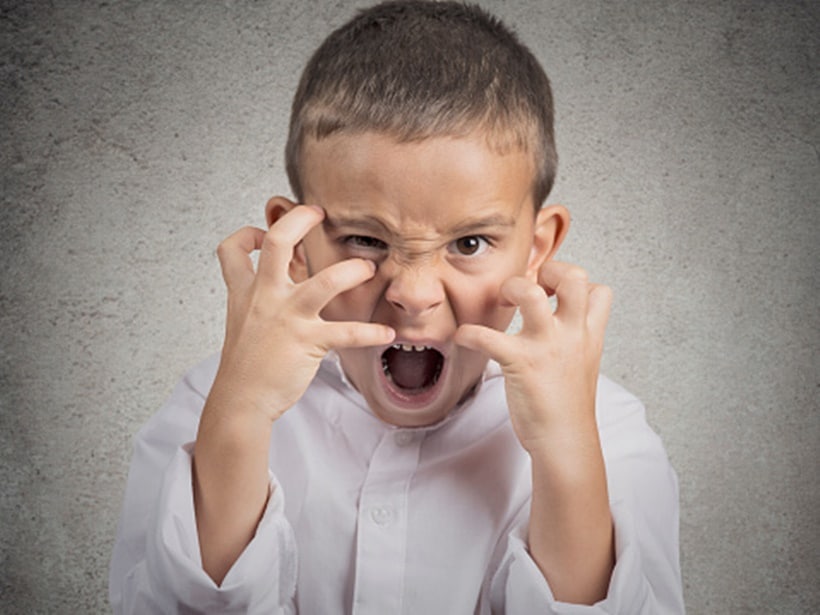
World Mental Health Day 2018: To be diagnosed with bipolar disorder, a child needs to experience mood alterations from a manic mental state to one of being clinically depressed. Children can also combine the two to form an “aggressive depressed” state.
By Vihan Sanyal
Parenting is tough business in general and if you happen to be a parent of a child diagnosed with Bipolar Disorder, your role of a parent becomes a lot more demanding and challenging. Here, we share a few tips with those parents and caregivers who are new at caring for a child with bipolar disorder.
Children who have bipolar disorder go through a range of emotions and can experience drastic shifts in their mood. They can be calm one minute and hop right into a full blown manic state and be completely withdrawn and depressed the next. To be diagnosed with bipolar disorder, a child needs to experience mood alterations from a manic mental state to one of being clinically depressed. It is common for children with bipolar to combine their manic and depressive states together and form an “aggressive depressed” state.
Children are known to through tantrums and become angry or annoyed from time to time and become sad over matters that would seem trivial for adults. This scenario is different in the case of bipolar disorder and can quickly become dangerous as the children lose total control over their emotions. The anger tantrums soon transform into rage and the child may become violent. The rational, thinking part of the brain located in the frontal cortex completely shuts down during this phase of rage and the limbic system (area of the brain responsible for rage) takes charge, resulting in a physically strong and violent child. All this can happen in the split of a second, without warning and without any triggers and can last for hours. The important thing to understand here is that a chemical imbalance is the cause of their odd behaviour and parents need to take the necessary steps to handle the situation appropriately.


Here are a few tips for parents and caregivers to consider:
Get an evaluation
Get a mental health professional to evaluate your child and make sure that a formal diagnosis of the condition is made.
Ask the right questions
Read about the condition and ask questions on points you wish to gain clarification on, from the mental health professional. A few good questions to ask would be: What is the condition all about? What changes can we expect in our child? How to parent other children along with your child who is bipolar? How to parent such a child during episodes of rage? When should we seek professional help? What would constitute an emergency? Ask about medication and other treatment options.
Keep the high energy in control
Children with this condition lack a healthy emotional regulation mechanism and therefore may be anxious, irritable and find it difficult to stay calm. It is common for children with bipolar disorder to become super energised at night and sleepy during the day. Their body clock (circadian rhythm) is majorly disrupted due to bio-chemical changes in the brain. Medication can help control some of these symptoms and it is necessary for parents to expect such changes and discuss them with their psychiatrist.
Also Read| World Mental Health Day: Spot suicidal tendencies in kids early
Stay calm during an emotional crisis
Children with bipolar become stressed easily. It is important for caregivers to teach and encourage children to effectively manage their stress levels. The caregivers need to ensure that they don’t appear stressed or frustrated in front of the child as this can worsen their condition. It is imperative for parents and caregivers to wait for their child to become calm before speaking with them about unpleasant issues. These children are acutely sensitive and can respond adversely to emotional situations.
Avoid confrontation
Do not get into an argument with or reason with a bipolar child. Children with bipolar find it challenging to see things from another person’s view and can become enraged or hostile during an argument.
Be firm, but friendly
Parents must adopt a firm, friendly and kind parenting style. They need to help their children to understand and cope with their condition. A child with bipolar does not have the right to become violent, hurt people and destroy property. Parents need to ensure that their child knows that this sort of behaviour will not be tolerated and that they are going to be punished for it just like any other child who would behave this way. If such a situation arises, then wait until the child is calm before discussing the punishment with them. For some parents, it may seem harsh for them to discipline a child with bipolar. It is, however, for the child’s betterment and their future.
Learn coping skills
Bipolar is unfortunately a chronic condition, for which a person is likely to be on prescription drugs for their life. This condition can be managed but not cured. In addition to medication, parents and caregivers should engage with a therapist who has experience and training in dealing with children with bipolar. Psychotherapy has effective tools, which can teach parents, caregivers and children coping skills to deal with the disorder and with the effect it has on life. Therapy can improve a person’s life and help make the episodes less intense and bearable.
It is important for parents and caregivers to seek help early and to equip themselves with all the necessary tools currently available to deal effectively with this condition. It would also be worthwhile for the family unit (including siblings) to attend sessions of psychotherapy. You will not only be better prepared, but also be able to deal with the spike in your stress levels while caring for a child with bipolar disorder.
(The writer is a psychotherapist.)
Source: Read Full Article